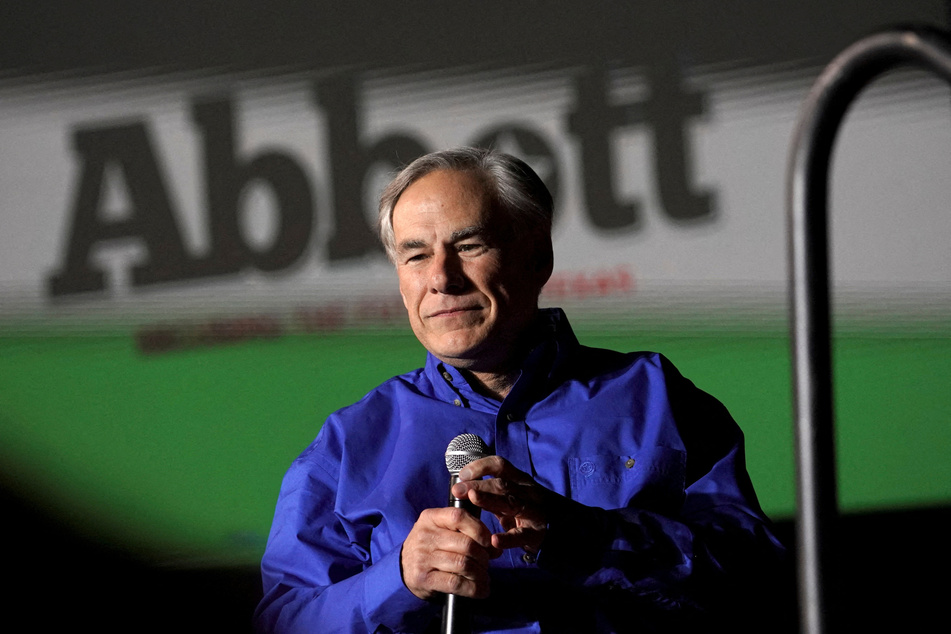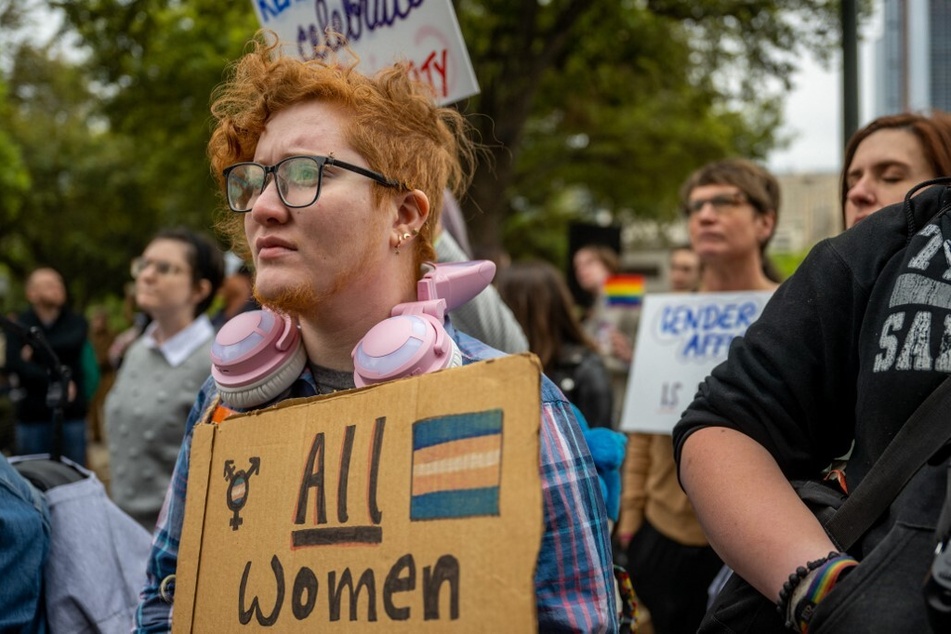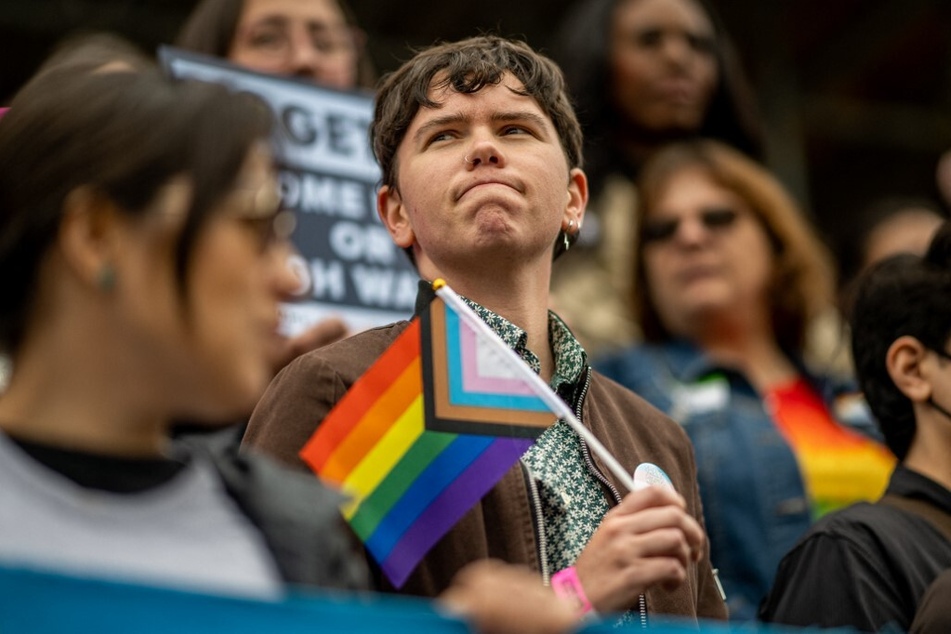Texas signs law banning trans athletes from college sports
Denton, Texas - Texas Governor Greg Abbott on Monday signed into law the so-called Save Women’s Sports Act, banning transgender athletes from competing at the collegiate level in Texas – a move activists say represents the latest effort to winnow rights away from LGBTQ+ people and ostracize them from day-to-day life.

The signing was ceremonial; Abbott first put his signature to Senate Bill 15 in June. He was joined Monday by several conservative Texas lawmakers and two female former college swimmers, who say they were made to feel uncomfortable or put at a competitive disadvantage because of a transgender athlete's presence in their sport.
The law builds on legislation previously signed by Abbott in 2021 that limits the ability of trans K-12 athletes in Texas public schools to play sports on teams corresponding to their gender identity.
Joining the governor were former college athletes Riley Gaines and Paula Scanlan. Gaines, who attended the University of Kentucky, has built a media career stemming from her appearance at the NCAA Swimming and Diving Championships in March 2022. During the 200 freestyle event, she tied with Lia Thomas, a transgender student-athlete from the University of Pennsylvania. Scanlan was on the swim team with Thomas.
Abbott said Gaines and Scanlan – not LGBTQ+ people – were the true victims of marginalization.
"These are the women who committed their lives – altered their lives – so that they can compete, and yet you heard Riley talking about how she was marginalized," Abbott said. "She was the winner, and she was denied that victory."
Gaines and Thomas tied for fifth place during their event in 2022.
Greg Abbott accused of having misplaced priorities

While proponents of the law say it reduces the competitive advantage transgender women might have in women’s sports, the lack of data on the subject makes verifying such an advantage difficult.
Critics say the law seeks to address an issue that largely doesn’t exist. Only about three dozen openly transgender athletes have competed at the collegiate level across the country, and none have been known to compete at a Texas college or university.
Asked by The News about that criticism during a press conference after the bill signing, Abbott laughed but did not answer.
As Abbott signed the bill into law, the muffled shouts of about 200 protesters could be heard. Protesters who spoke with The News said they believed the governor’s priorities were out of step with the wishes of the majority of Texans.
"Let’s start with the electrical grid, then let’s go to teacher pay," said Grace Chalon of Denton. "Let’s go to a broken foster-care system. Homelessness. Issues at the border. That’s a good start."
LGBTQ+ Texans and supporters protest new athlete ban

Protesters who identified as transgender or gender non-conforming said they believed the law was designed to incubate hate against them – not protect female athletes.
"I don’t understand why our governor is focusing on violently suppressing us," said River Gallagher, a Texas Woman's University student who is transmasculine and uses they/them pronouns. "It’s such a waste of our government’s time. I just want to use the bathroom."
Gallagher said they have lived in Texas for 20 years, out since 2016 and transgender since 2018. But this summer was the first time they said they feel physically afraid to live in Texas – tying that directly to anti-LGBTQ+ efforts by the Texas Legislature.
Gallagher said they are looking outside of Texas to continue their education. But they were heartened to see so many people protesting against the law on Monday.
"It means a lot to know we’re not fighting this battle alone," they said.
The protesters jeered several lawmakers as they left the bill signing. One protester tossed water and threw a bottle at state Representative Lynn Stucky as he left the ceremony. He did not appear to be hit.
According to data compiled by the Trevor Project, legislation targeting LGBTQ+ people has had a profound impact on the mental health of LGBTQ Texans, 86% of whom said in a survey last year that recent politics negatively affected their wellbeing.
Cover photo: Collage: Brandon Bell / GETTY IMAGES NORTH AMERICA / Getty Images via AFP & REUTERS

